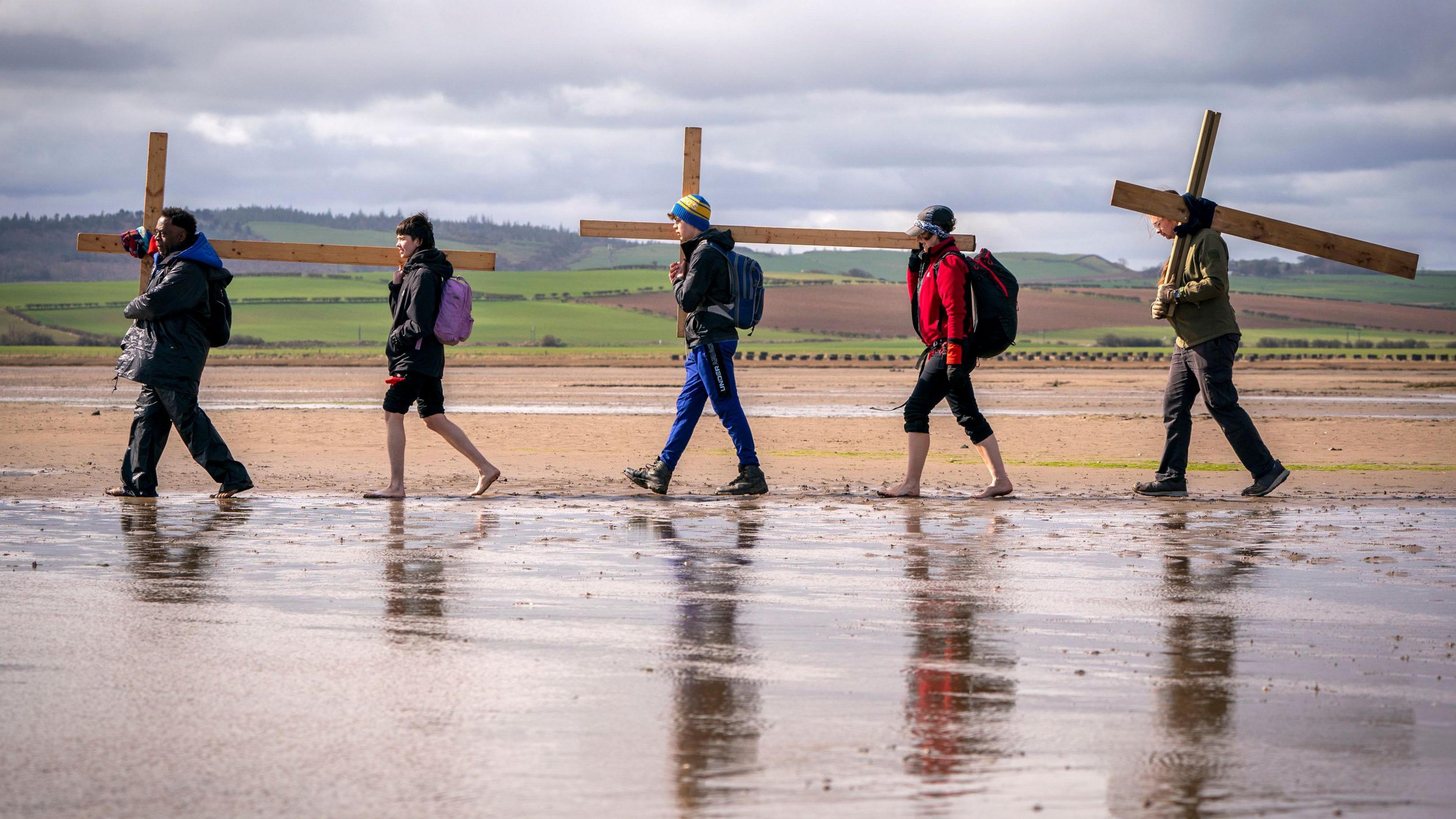Vicar of Holy Island on a mission to turn the tide
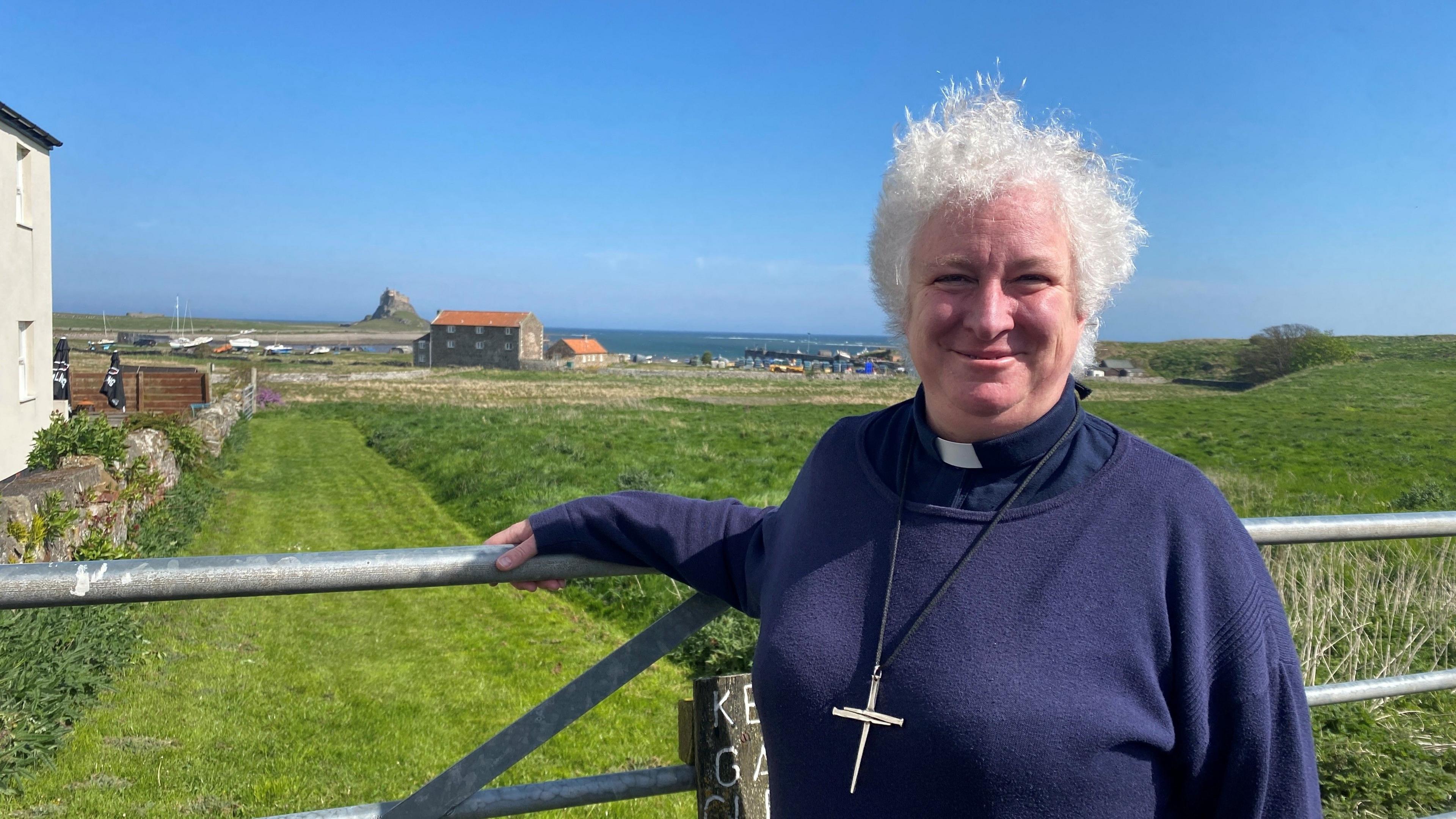
The Reverend Canon Dr Sarah Hills says Holy Island deserves a vibrant, sustainable future with jobs and affordable housing
- Published
Up to 800,000 people visit Holy Island each year.
Separated from mainland Northumberland by a tidal causeway, it is a place sacred to many for its beauty, wildlife and important place in Christian history.
But when the Reverend Canon Dr Sarah Hills arrived in 2019 she found a community with its struggles.
With an ageing and shrinking population, fewer than half the houses were permanently occupied and only two children attended its primary school.
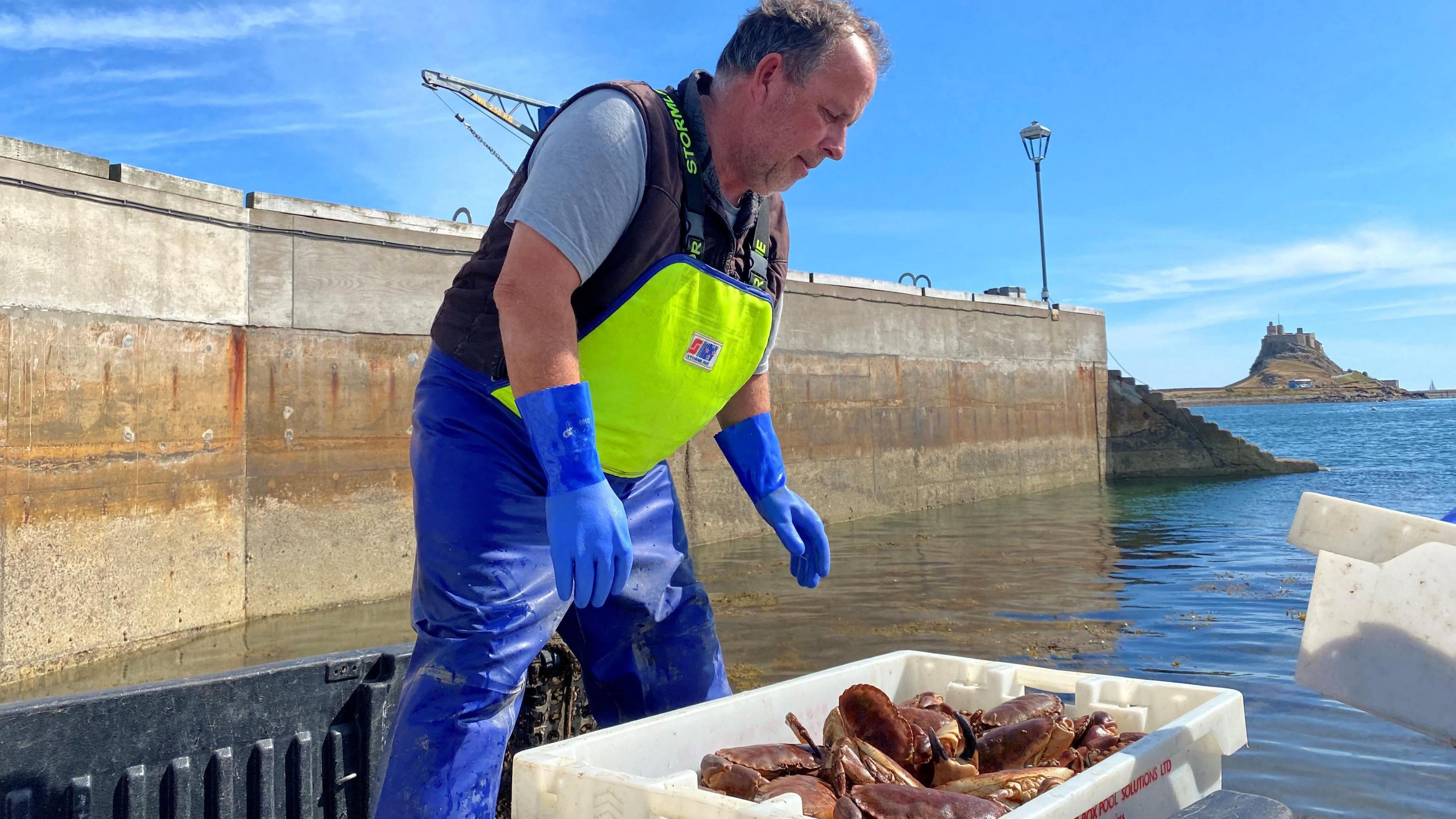
A small but important fishing industry provides employment for around 15% of the islanders
"Lockdown and the absence of tourists gave us time to think," Dr Hills said, as she looked out to St Cuthbert's Island and the mainland from her vicarage next to St Mary's Church.
"We need the visitors, of course, but we also need the island to be a vibrant, sustainable place with affordable housing and jobs".
So, in 2022 and led by the vicar, a project called Holy Island 2050 was born.
It envisaged a different future for the island, one that would offer visitors a different experience.
"People arrive on the island and wander around, but how easy is it for them to learn about the island, its incredible history and its unique flora and fauna?" she asked.
"It's crowded, hard to navigate with run-down amenities."
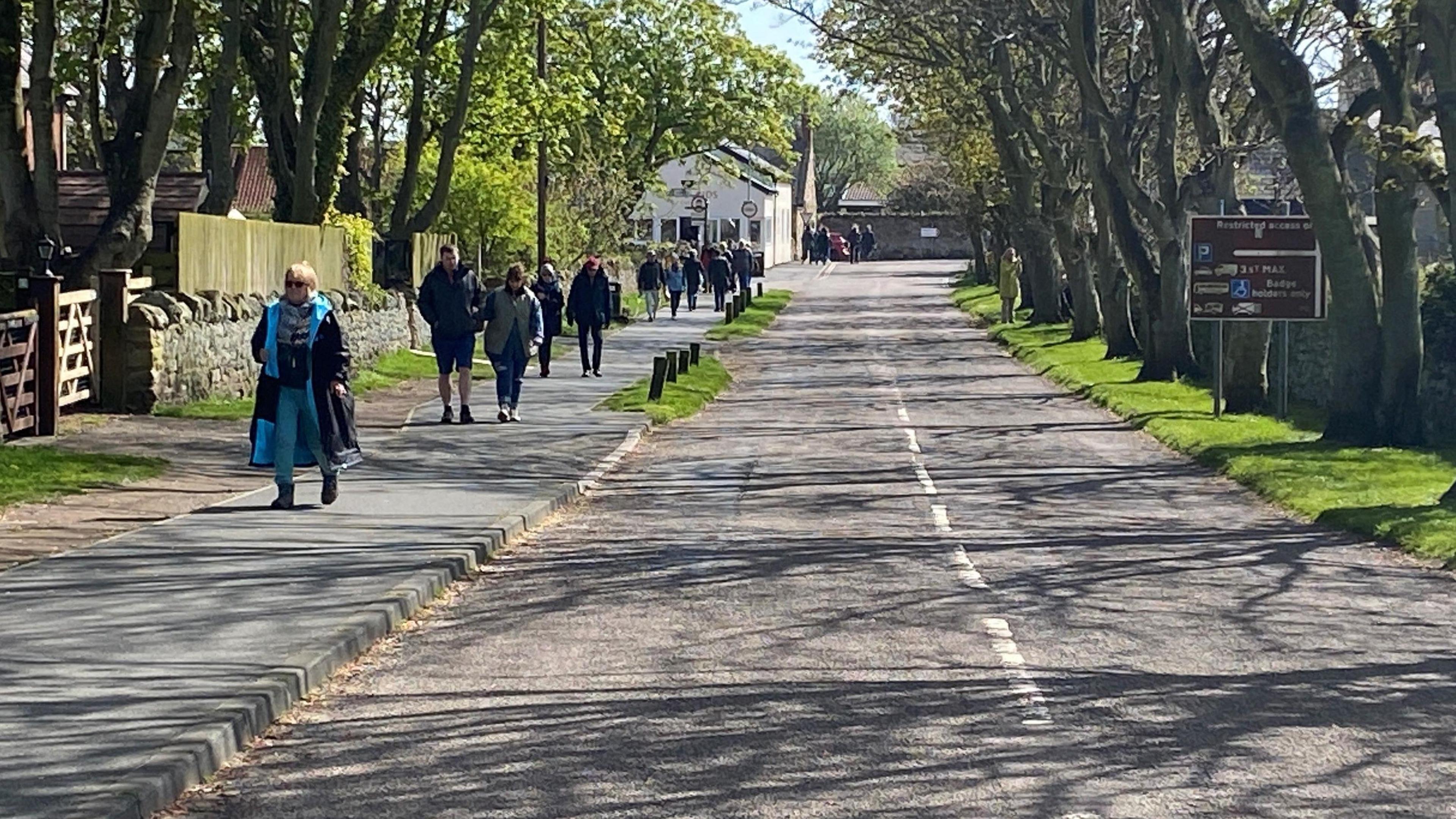
Better transport links to the mainland are under consideration
Just two years on and the project has claimed some notable successes.
In 2022, Defra proposed designating the island a Highly Protected Marine Area (HMPA), which would ban all fishing and wipe out the small but important fishing fleet which provides employment for about 15% of the permanent population.
The islanders ran a vociferous campaign which resulted in the plans being dropped.
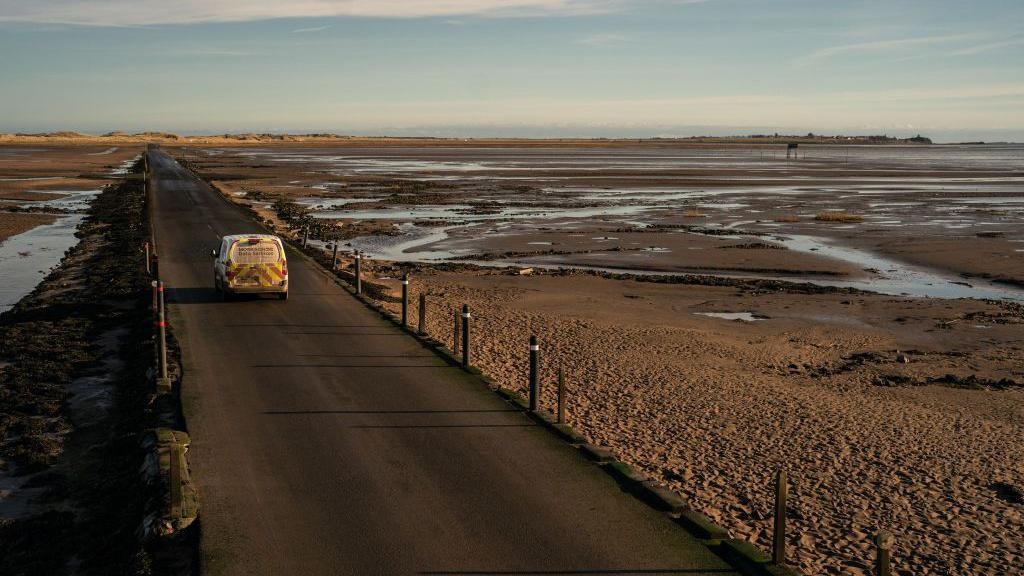
A causeway is the only road on to the island and is covered by the sea twice a day
The school now has five pupils after two families moved to the island, with more to join soon from the nursery.
A new visitor centre and better transport links, such as a cycle and walkway and a park and ride close to the A1, are under consideration.
"It is ridiculous that everyone drives to an island where you can't drive anywhere," Dr Hills said.
"So many cars come across and leave, it's just so hard sometimes for local people to go about their normal lives."
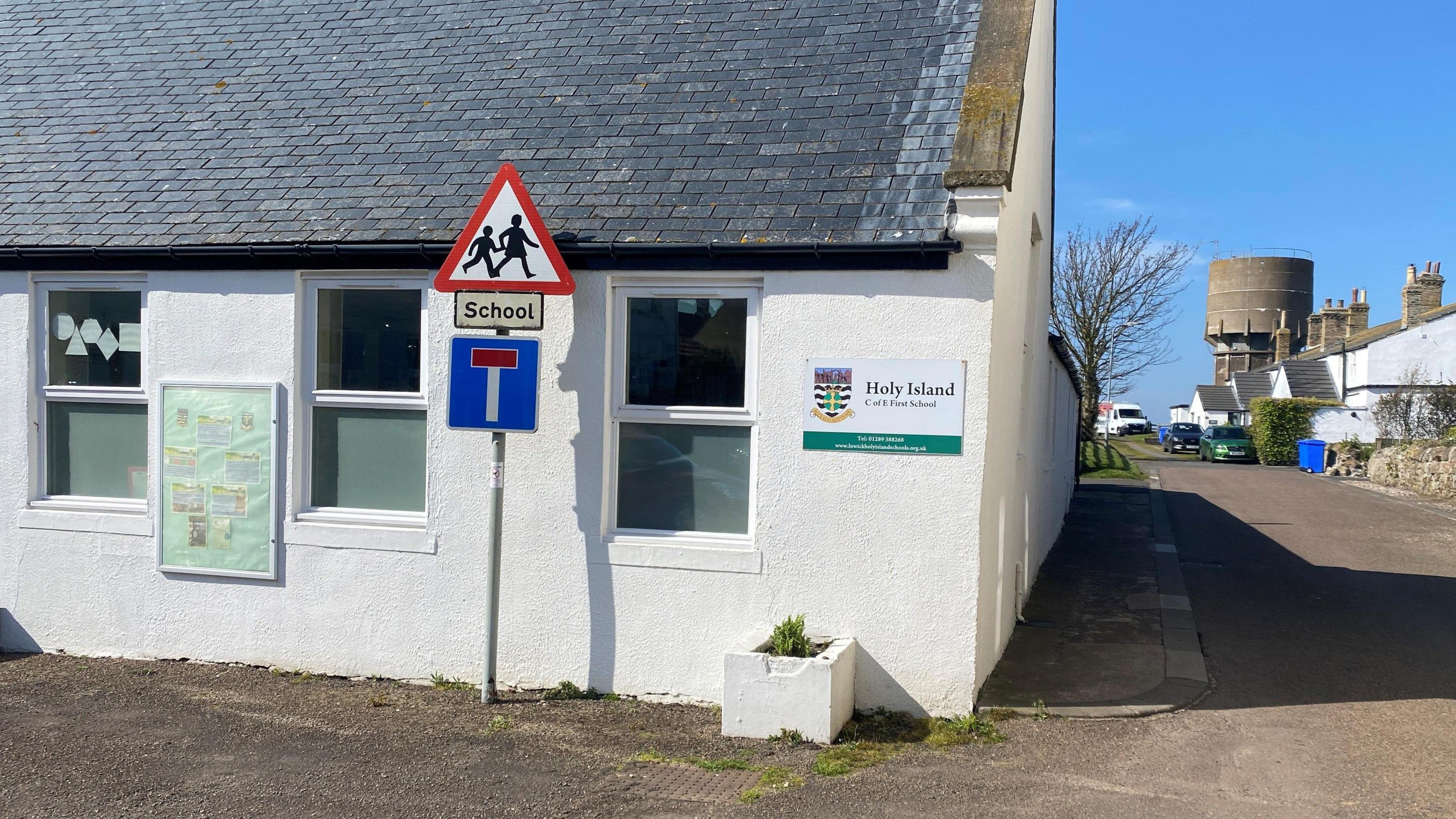
When tides permit, the handful of children who attend Holy Island Church of England First School join the pupils of Lowick school on the mainland
Co-chair of Holy Island 2050 is George Hogarth, one of many who own a second home on the island.
"I've never felt any direct hostility towards those of us who are not here all the time, but we do need to have affordable homes reserved for those who do," he said.
The island has a community development trust which has 11 properties reserved for people who live and work on the island, however there is general agreement more is needed.
"We have identified some land which may be suitable but we need to find the funding," Mr Hogarth said.
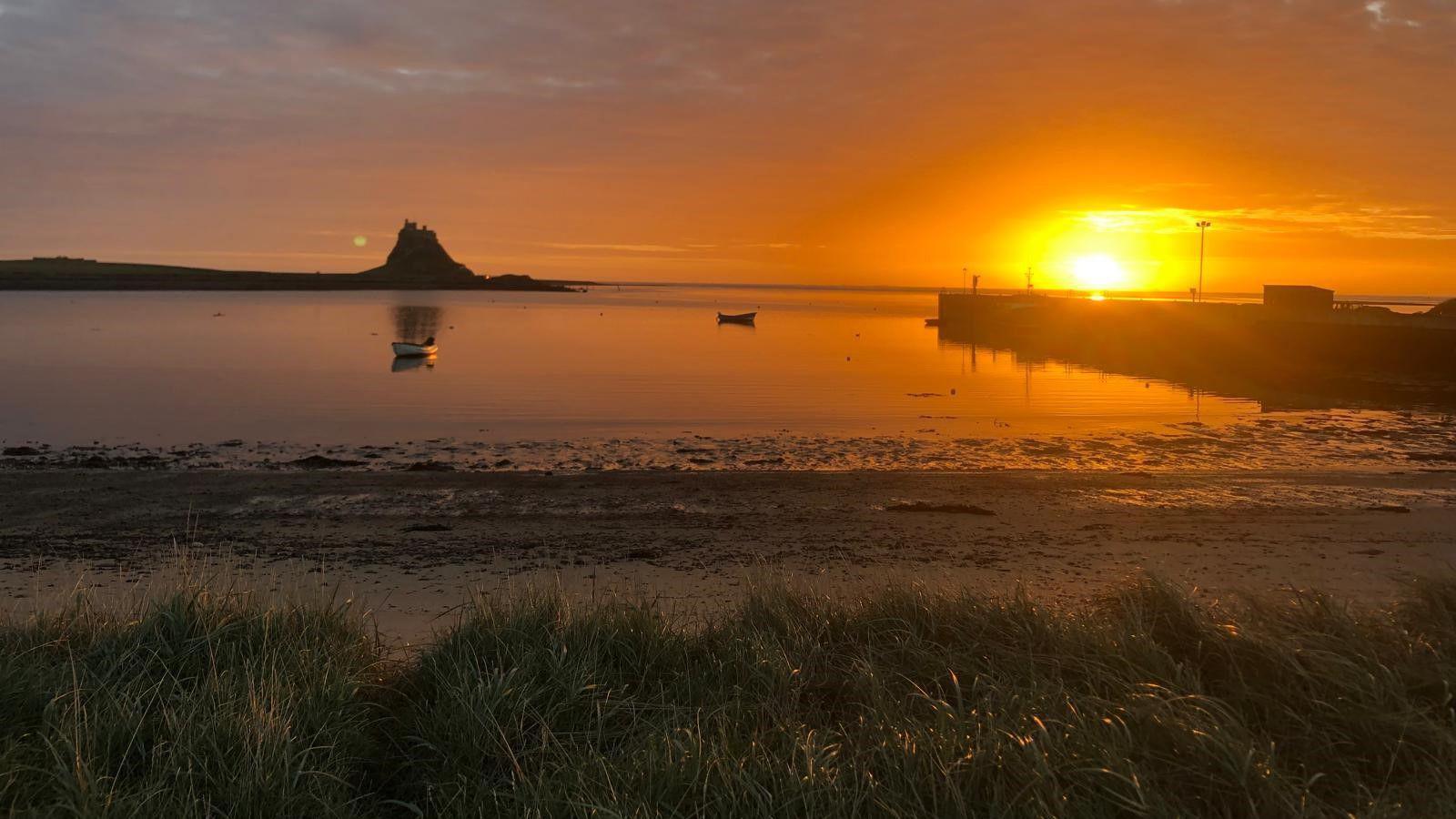
Holy Island is part of the Lindisfarne National Nature Reserve which covers 40 miles (65km) of coastline
In addition, Holy Island 2050 is involved in two surveys looking at developing new transport and tourism strategies for the island.
"We want people to come here and have an experience which is world class and right now it's just a bit chaotic," Mr Hogarth said. "People deserve better".
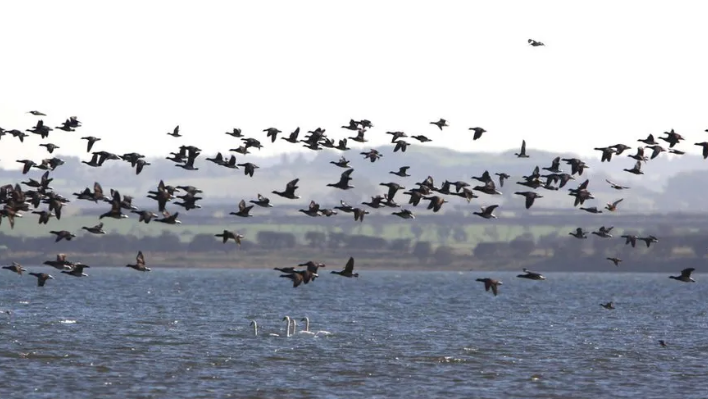
Lindisfarne is the winter home for 40% of the world's light-bellied geese and has more than 300 species of birds
John Bevan is a permanent resident but originally came to Holy Island when his parents bought a holiday home there in 1962.
His daughter and son-in-law are among a handful of young people living there, so he has good reason to hope the vision of 2050 will be realised.
"Andrew was born here and is a fisherman, and Kirsty is a chef in one of the pubs and they have a four-year-old who is just about to join the school," he said.
"This isn't a museum, it's a living place and a brilliant environment for a child to grow up, so I really hope, as a family, we all have a future here."
Follow BBC North East on X, external, Facebook, external, Nextdoor, external and Instagram, external. Send your story ideas to northeastandcumbria@bbc.co.uk.
More stories from BBC North East and Cumbria
- Published25 February 2023

- Published22 September 2022
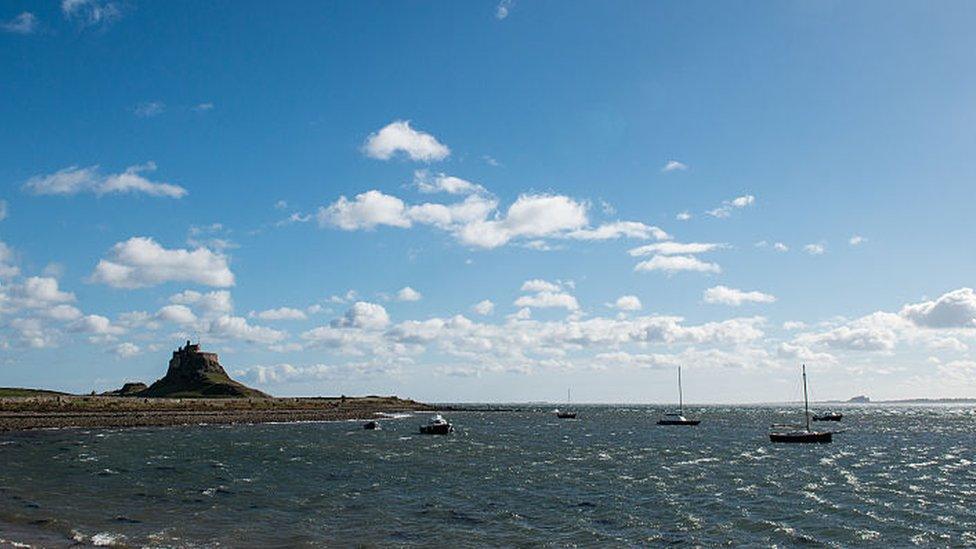
- Published21 August 2024
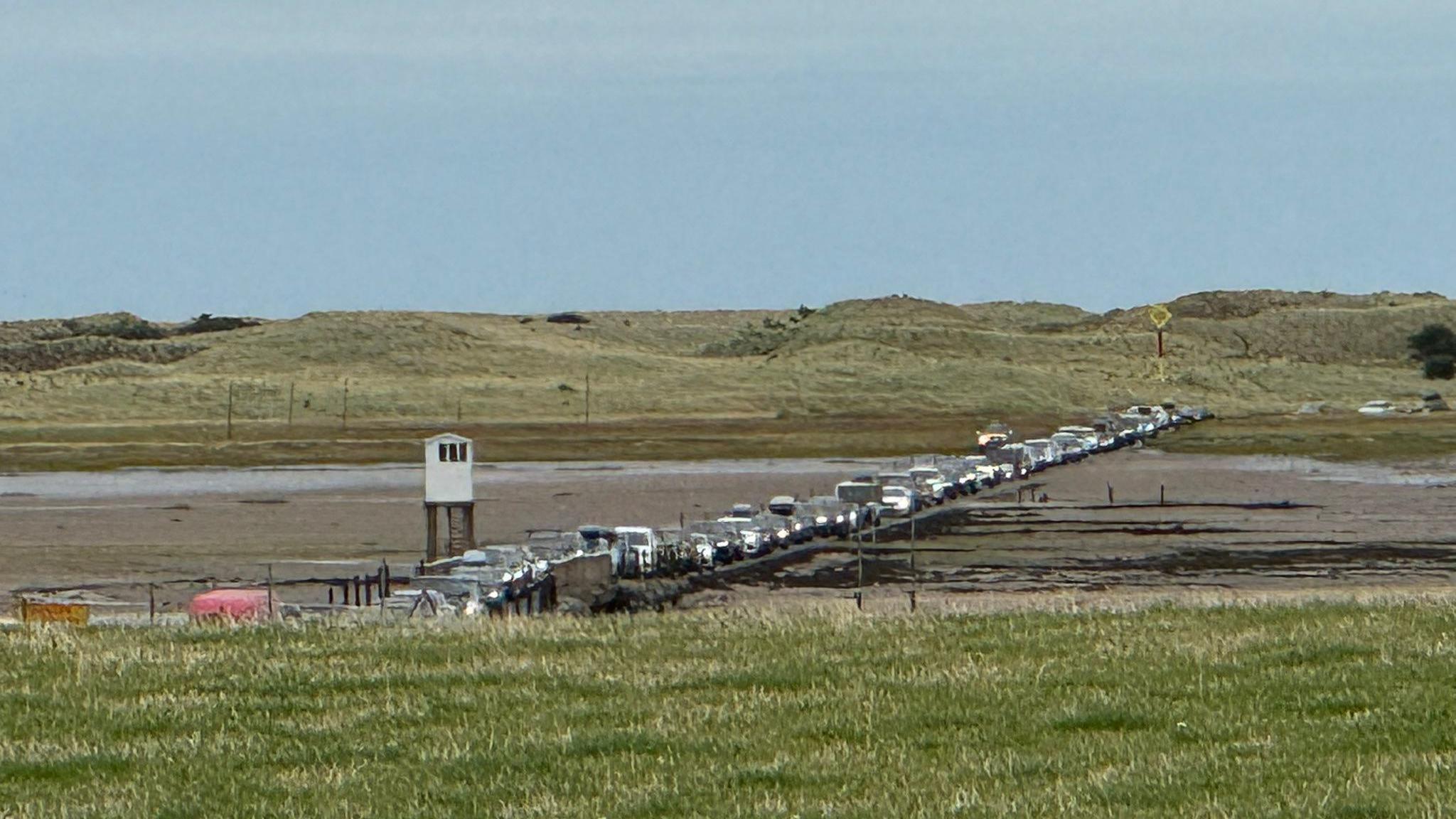
- Published29 March 2024
